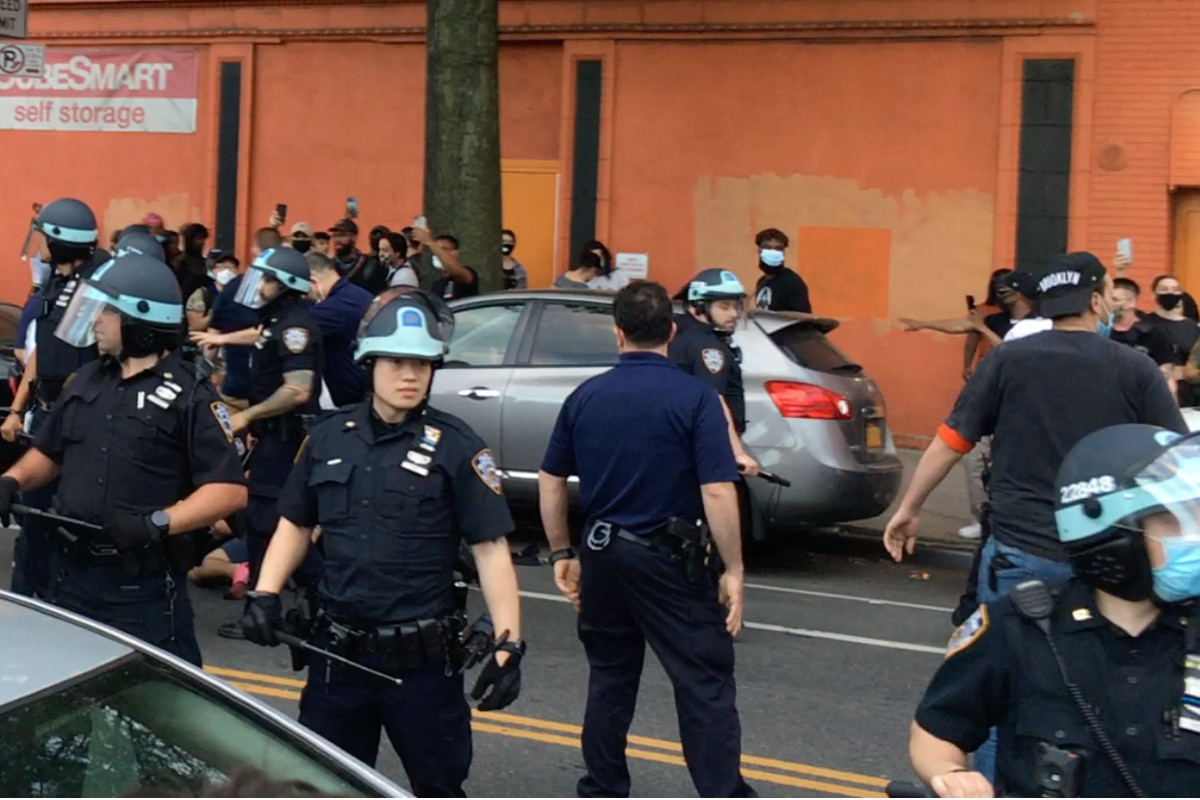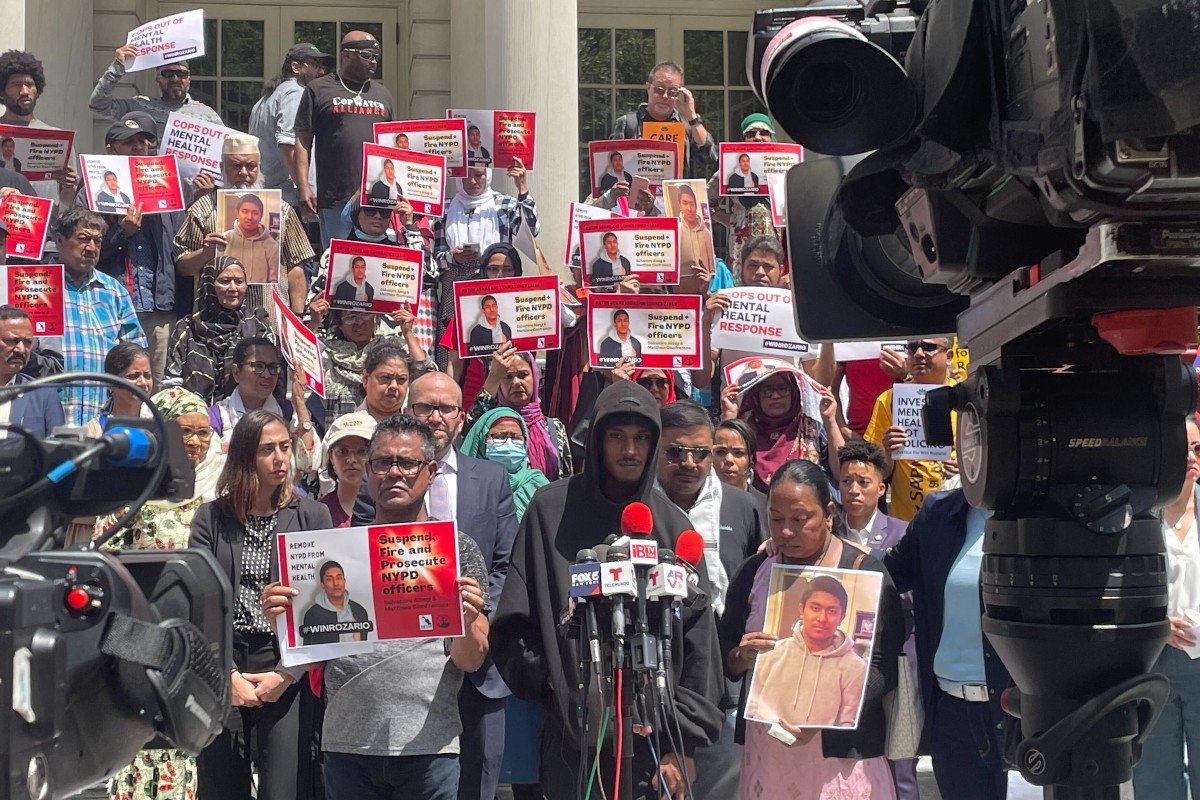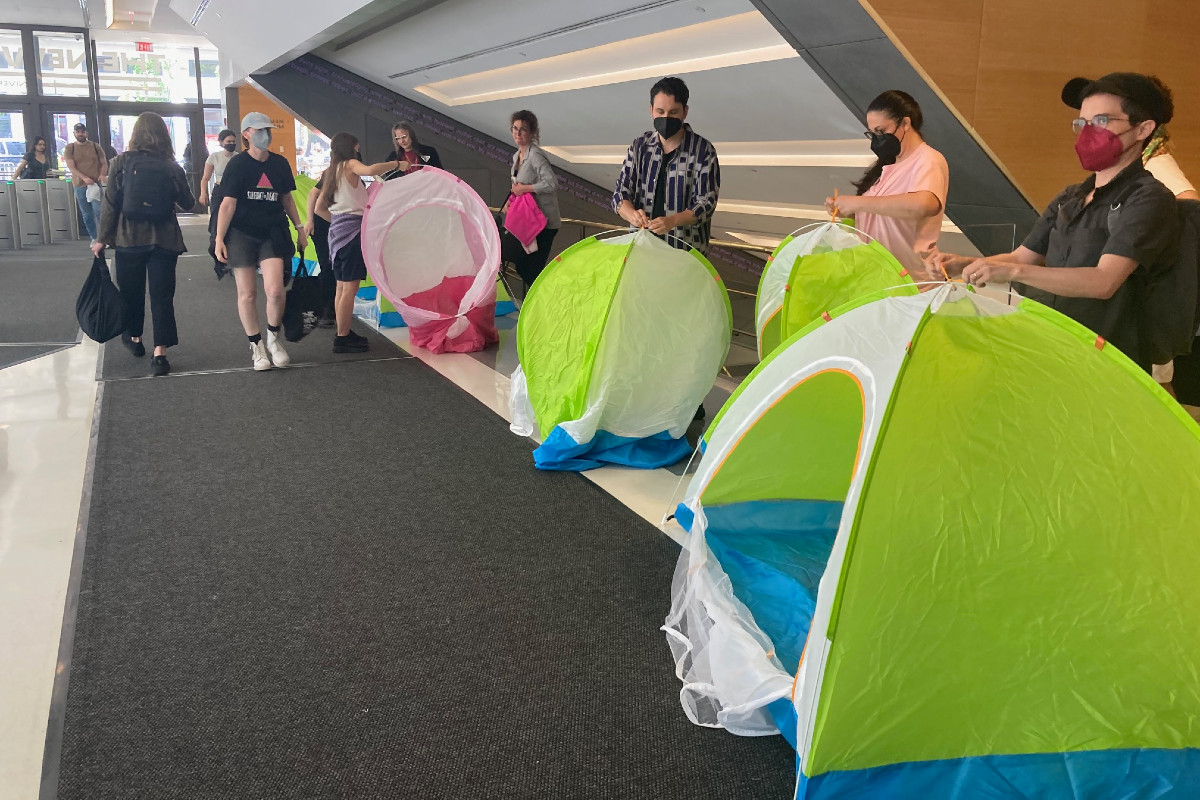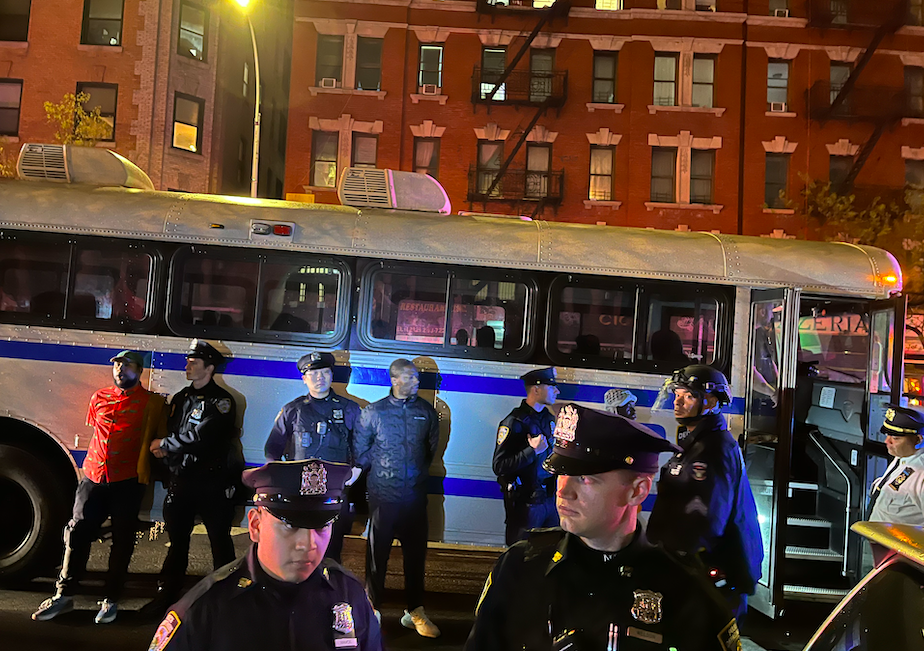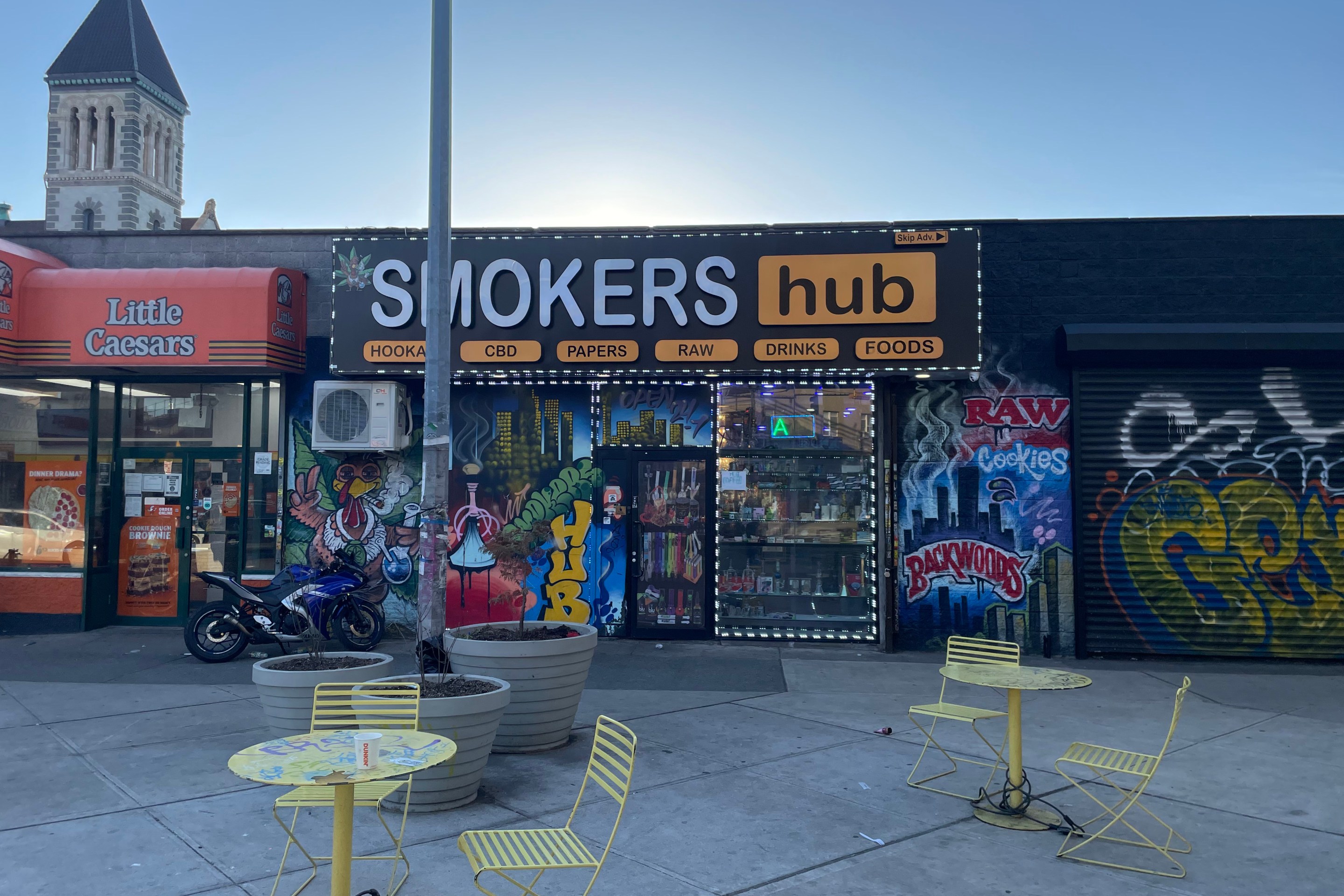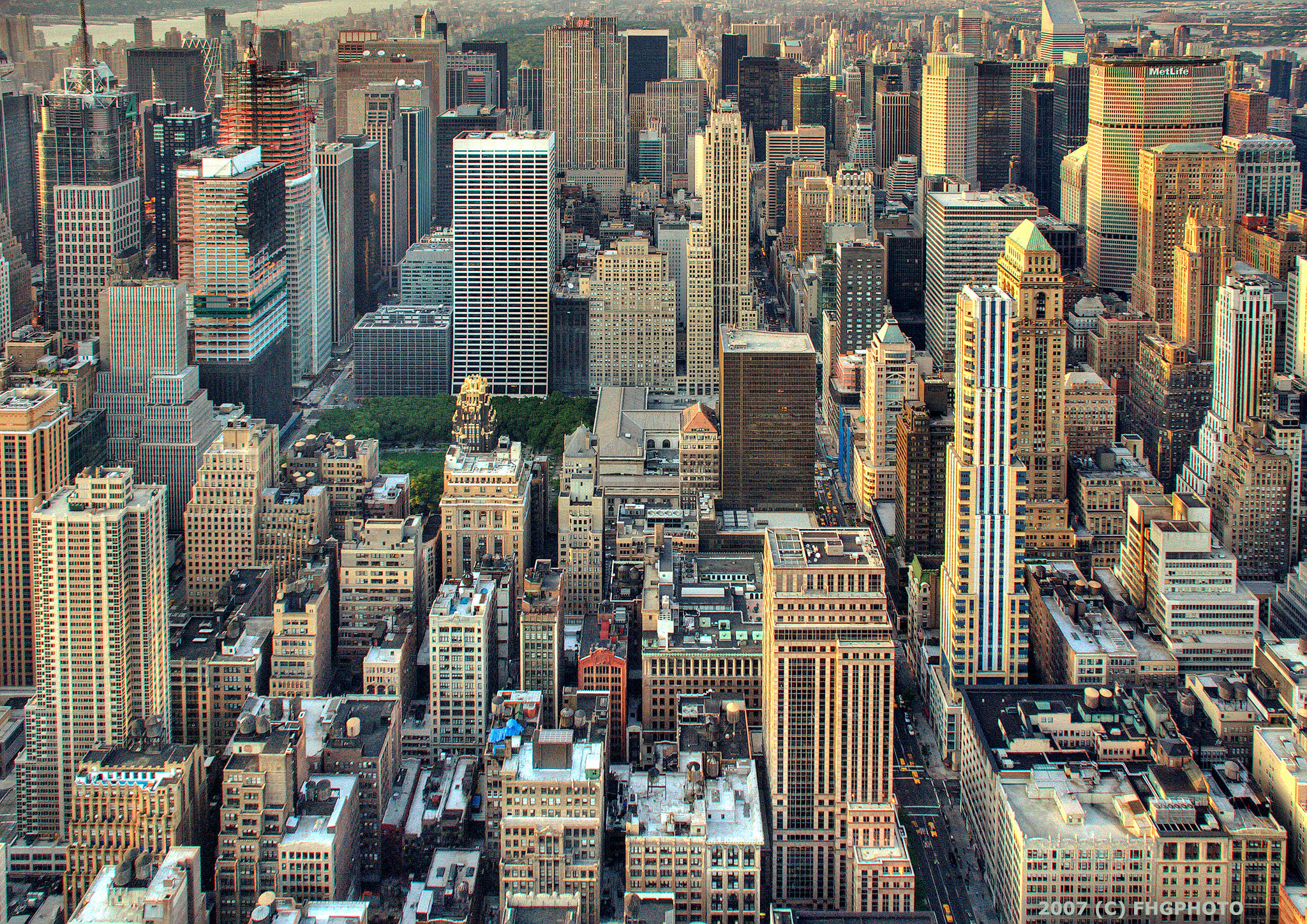The efforts of the city's largest police union to block a legal settlement imposing reforms on how the NYPD reacts to protests were stymied Tuesday, as a federal judge denied their request to block the settlement.
The agreement resolves a suite of lawsuits brought against the City and the NYPD by the New York Attorney General and protesters over the police department's violent suppression of the 2020 George Floyd protests, and commits the NYPD to a more demonstrably justified and proportional response to protests in the future. Pracitcally speaking, this means that police officers will not be able to "kettle" protesters, and will need to be able to show a demonstrable reason for deploying large numbers of officers or arresting people for low-level offenses.
The Police Benevolent Association, which represents 24,000 rank-and-file officers, and which is not named in any of the lawsuits, objected to the settlement, arguing that requiring police to have justification for deploying large numbers of officers or escalating their use of force, as the settlement does, puts the physical safety of police officers in danger.
That argument didn't wash with Judge Colleen McMahon, who ruled that although the Second Circuit Court of Appeals ordered her in 2021 to allow police unions to intervene in the case, that didn't give the PBA veto power over agreements reached between the plaintiffs and the City to resolve the litigation. As an intervenor in the lawsuits, the PBA would have to show that the settlement would cause it to "lose a legal claim or cause of action," the judge wrote, and the union failed to do this.
The judge agreed with the union that the settlement amounts to a consent decree, and that for this reason the judge could toss out the settlement if she found it to be "not fair and reasonable, and would disserve the public interest." But the PBA's arguments for why the settlement meets these standards aren't persuasive, McMahon ruled. "This provision leaves ample room for officers to make judgment calls in real time," she wrote, and arguments that the settlement is contrary to the public interest are hard to credit when "multiple governmental bodies—both the plaintiff and the defendants—have concluded that the terms of consent decree are acceptable and would not disserve the public interest."
The union's argument that the parties should have to prove that there's actual merit to the claims that the City had a pattern and practice of constitutional violations before a settlement is allowed is "not simply counter-intuitive," McMahon wrote, it is "improper."
The PBA's arguments over the department's deployment policy are just that, McMahon ruled: policy arguments, which don't constitute a legal basis for blocking a settlement.
The PBA has already had success once in this case getting an order of McMahon's overruled—the judge initially denied their motion to intervene, only to have the appeals court overturn her decision—so it's not at all unlikely that the union will press its luck again. It has 30 days from the ruling to file an appeal.
"The next time a peaceful protest is hijacked by rioters, the next time our roads, bridges or subways are shut down by agitators, New Yorkers should remember that their city chose to encourage these disruptions by signing onto this misguided settlement," PBA President Patrick Hendry said in a prepared statement responding to his union's loss in court. "If the NYPD is unable to prevent future demonstrations from devolving into chaos, the parties who signed onto this settlement must bear the blame.”
If the union does appeal, it could seek to stay the settlement from going into effect until the appeal is resolved. But unless that happens, the NYPD is bound by the terms of the settlement it has signed. The department must now begin drafting policies and training curricula to bring it into line with the agreement. After the parties have all signed off on those policies and training programs, they will institute a "Collaborative Review Committee" composed of both the NYPD and a City lawyer and representatives from the plaintiffs, and chaired by the Commissioner of the Department of Investigation. The committee will meet periodically to review how the NYPD handled specific protests, and whether it's complying with the terms of the settlement.
The committee reviews won't begin for months at the soonest. In the meantime, New York is in the midst of its first significant wave of protests since the George Floyd uprising of 2020, as demonstrators opposed to the bombing of civilians in Gaza regularly take to the streets in significant numbers. In October, police responded to a demonstration in Bay Ridge with a display of force that likely would have violated the terms of the settlement. On Wednesday, the day after the judge's ruling, the NYPD arrested more than 60 people protesting a fundraising appearance of President Joe Biden for his support for the war on Gaza.
When the committee finally does start meeting, it will do so a few times a year for three years. Then, after a fourth year, the NYPD will no longer be bound by its commitments under the settlement.
